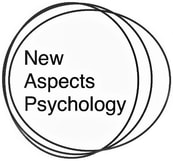Therapies
Michelle Skor is trained in a number of psychotherapy techniques, some of which are summarised below.
Cognitive Behaviour Therapy (CBT)
Often considered the gold standard treatment for many issues and psychological disorders including anxiety disorders and depression. It is one of the most well researched forms of psychotherapy and shown to be effective for a range of issues. It works to change unhelpful thinking patterns and behaviours. It also involves skill training such as problem solving, cognitive (thought) restructuring, exposure therapy and relaxation techniques.
Schema Therapy
An integrative therapy. Includes elements of cognitive behaviour therapy, attachment, gestalt and object relations therapy. It focuses on identifying and healing maladaptive schemas and coping modes. Schemas are deep beliefs about how we see ourselves, others and the world. Schemas usually emerge from childhood. Schema therapy allows you to discover your own set of schemas which may be holding you back. Therapy also focuses on developing self-compassion and more helpful responses when schemas are triggered. This therapy involves cognitive and experiential work (Australian Psychological Society, 2018).
Acceptance & Commitment Therapy
A therapy which helps people connect to their values and what is most important. It uses mindfulness based skills to promote a sense of calm and connection to the present. It can assist in developing more psychological flexibility and allows people to get less caught up in struggles. These struggles can cause anxiety and hold us back from living in line with our values.
Dialectical Behaviour Therapy
A cognitive (thought) and skills based therapy, helpful to improve the regulation of emotions and to reduce distress. It also focuses on interpersonal skills. It is useful for people who experience very strong emotions and for people who self-harm.
Solution Focussed Brief Therapy
A brief strengths based therapy that focuses on what the person wants to achieve rather than being weighed down by problems. This therapy explores solutions whilst finding existing resources which can be built upon to facilitate change.
Narrative Therapy
A strengths based therapy which helps people find their own unique resources and skills to create positive change. It reframes the stories or narratives we use to describe our lives. This allows the story to become more enriched and to include many strengths and assets which may be overlooked.
Eye Movement Desensitisation & Reprocessing (EMDR)
This treatment has been endorsed by the World Health Organisation for the treatment of post traumatic stress disorder (PTSD). Research shows it is an effective therapy (Hour, Dobbelaere & de Beaurepaire, 2019). Traumatic memories can be unprocessed and stuck and are replayed in response to traumatic reminders. EMDR uses bilateral (side to side) stimulation or eye movements. This mechanism is similar to REM/dream sleep and allows the memories to become 'unstuck' and processed like regular memories. The traumatic memory is then still able to be recalled but no longer causes distress, allowing room for more helpful beliefs and emotions to emerge. EMDR typically involves fewer sessions than other trauma therapies, so change happens more quickly. EMDR can also be used for phobias. More information can be found here.
REFERENCES:
Australian Psychological Society (2018). Evidence-Based Psychological Interventions in the Treatment of Psychological Disorders. A Review of the Literature. Fourth Edition.
Hour F., Dobbelaere E. & de Beauepaire C,.(2019) Scientific Evaluation of EMDR Psychotherapy for the Treatment of Psychological Trauma Summary: Scientific Evaluation of EMDR Psychotherapy. Journal of Neurology and Neuromedicine 4(2), 5-14.
Australian Psychological Society (2018). Evidence-Based Psychological Interventions in the Treatment of Psychological Disorders. A Review of the Literature. Fourth Edition.
Hour F., Dobbelaere E. & de Beauepaire C,.(2019) Scientific Evaluation of EMDR Psychotherapy for the Treatment of Psychological Trauma Summary: Scientific Evaluation of EMDR Psychotherapy. Journal of Neurology and Neuromedicine 4(2), 5-14.
© 2024 New Aspects Psychology





